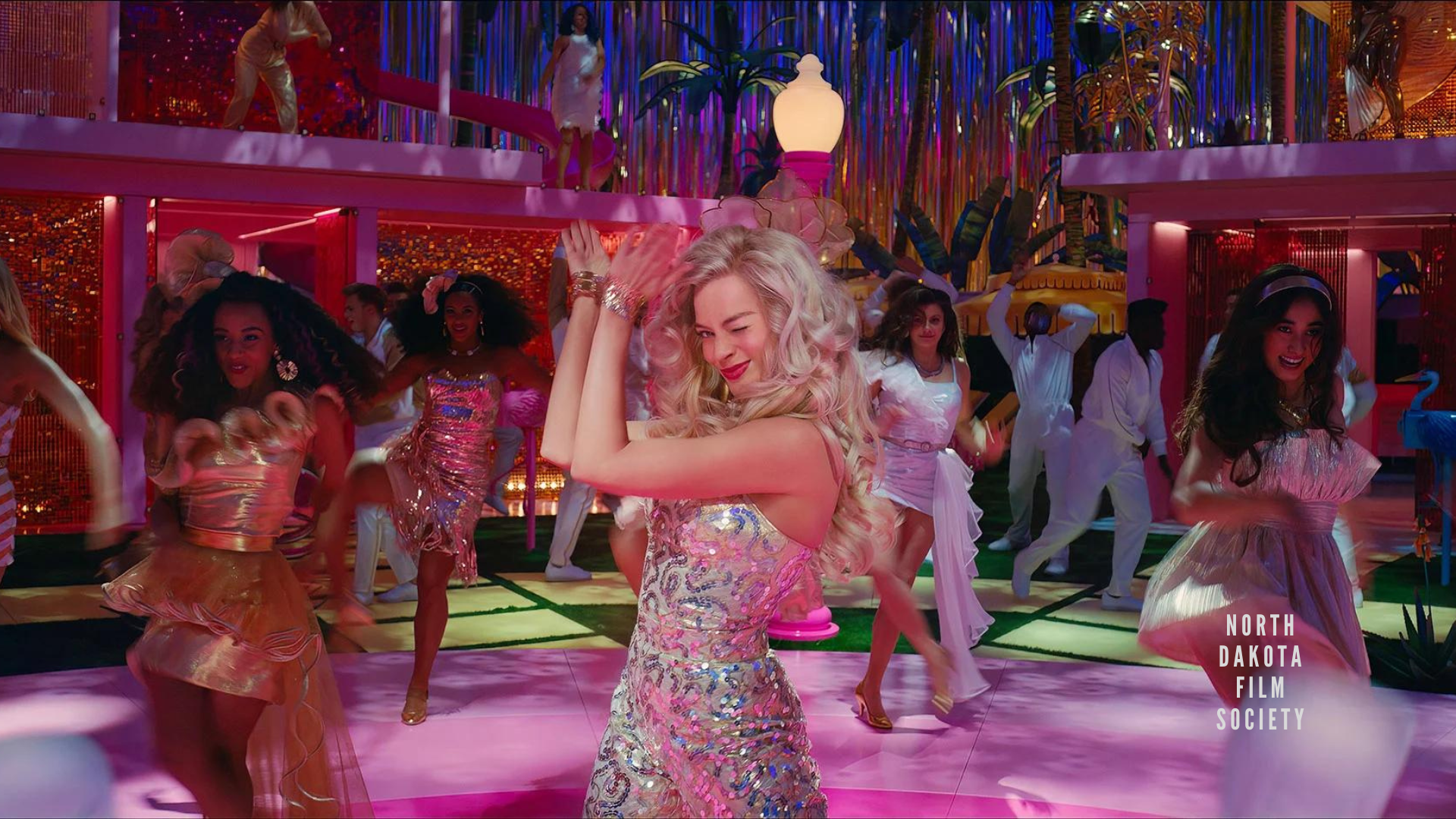Review: Greta Gerwig’s “Barbie”
BY GREG CARLSON
As fans dress up and Warner and Mattel executives celebrate box office returns, Greta Gerwig’s “Barbie” finally arrives – along with Christopher Nolan’s “Oppenheimer” – to jolt attendance and launch thousands of essays on everything from the film’s use of the Old Testament creation myth to its mockery of male fragility and the stranglehold of the patriarchy. A rainbow-colored fantasia not aimed at the intellectual capacity of the principal doll-collecting demographic (tots at the screening I attended repeatedly asked when the show would be over), the curious big-budget object is part cinematic bricolage, part satirical parody, part earnest homage, part metanarrative, and all paradox.
The paradox manifests most overtly in the way that Gerwig managed to secure near carte blanche from the IP overlords to address the misfires, problematics, curiosities, and cultural reinterpretations of the Barbie universe that would normally be squashed by fiscally conservative gatekeepers afraid of anything that might damage the brand’s bottom line. The result of that freedom is right there in the trailer, which promises, “If you love Barbie, this movie is for you. If you hate Barbie, this movie is for you.” Gerwig completely gets the way that the constructed feminism of the doll’s many empowerment career offerings (from astronaut to surgeon to entrepreneur to judge) clashes with the longtime arguments about Barbie’s impossible body proportions/beauty standards, white idealization, and unchecked materialism.
The film, which Gerwig co-wrote with partner Noah Baumbach, mostly gets to have its pink-frosted cake and eat it, even if the sobering environmental threat of climate impact exacerbated by the fossil fuel and deforestation requirements that it takes to manufacture the estimated 58 million dolls purchased each year is sold separately. The thankfully subdued appearance of Will Ferrell, in what at first looks to be the umpteenth variation on his exasperated executive, melts into the larger conflict between the utopian, matriarchal comfort of Barbieland and the grim gender inequities of the “real world.”
Margot Robbie is perfect as the so-called “Stereotypical Barbie” iteration of the icon, but a hilarious Ryan Gosling nearly steals every scene in which he appears as the dangerously dim Ken, an opportunistic hippophile who goes wild when he discovers that outside Barbieland, down is up and black is white when it comes to society’s treatment of men and women. Remaking their home as a nightmarish mirror image of masculine overconfidence, the Kens take to mansplaining “The Godfather” and strumming multi-hour versions of Matchbox Twenty’s “Push.” The Barbies plot to dismantle this new toxicity, but will a return to the previous anodyne self-deception make things any better?
The fulcrum for a yet-to-be-discovered third path is delivered by America Ferrera’s Gloria, a Mattel employee sympathetic to Barbie, in a terrific, quintessentially Gerwig-ian monologue that has instantly become the film’s signature moment. The heartfelt expression of frustration at the unresolvable conundra of contradictory expectations for women, no matter how recognizable and familiar to so many viewers, is a show-stopping tour de force delivered with a potency that has resulted in reports of everything from cheers and applause to tearful, stunned silence. It’s anything but plastic.
For more of Greg Carlson’s reviews, see Southpaw Filmworks.
